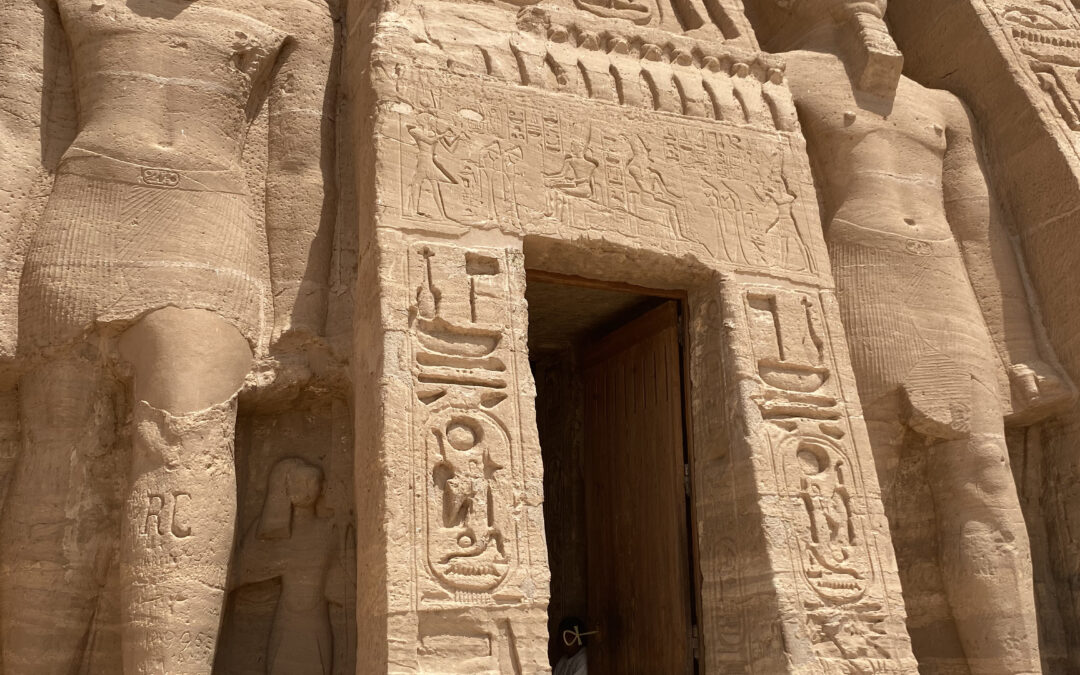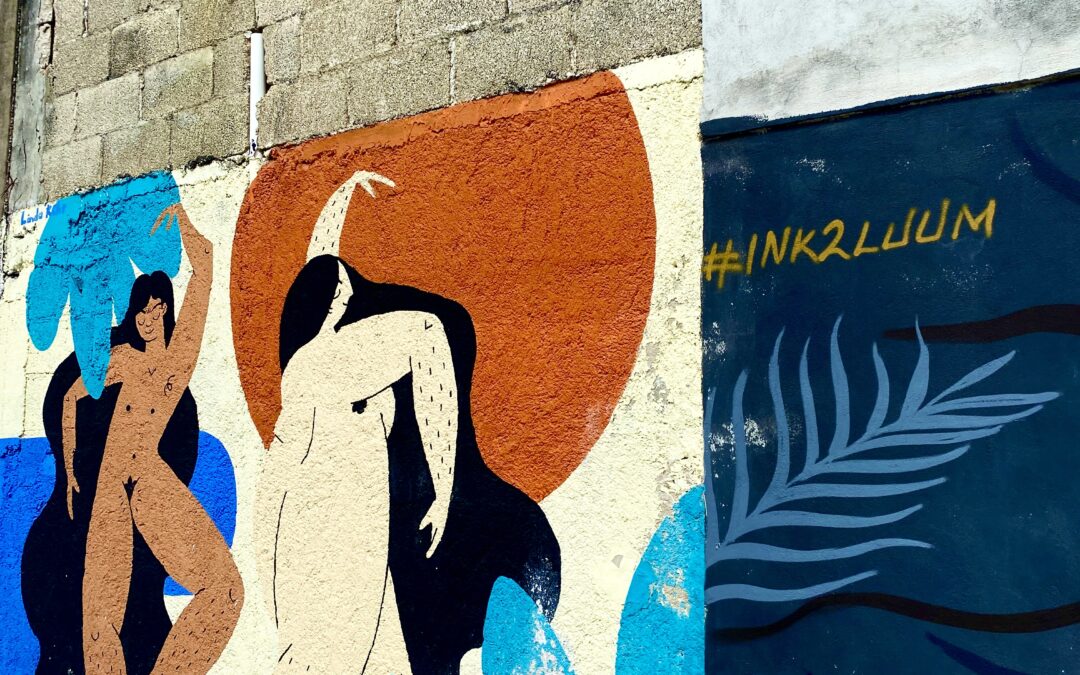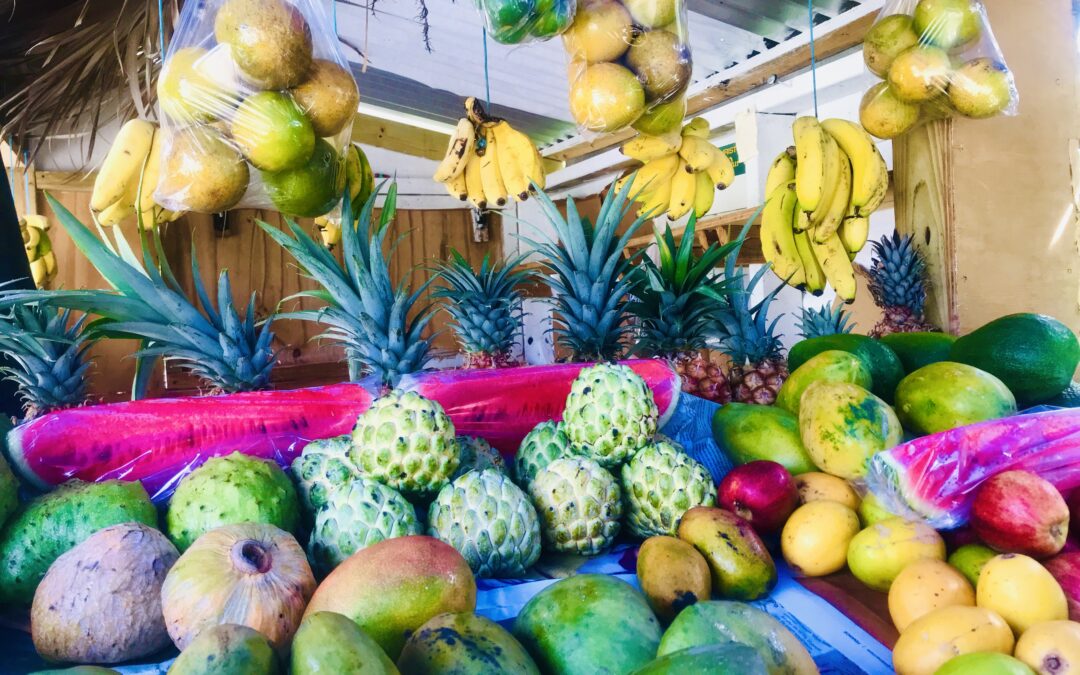
by Cortina Jenelle | Aug 20, 2023 | appreciation, heritage, travel
Egypt, with its iconic pyramids, enigmatic Sphinx, and the winding Nile, narrates tales as old as time. Beneath its golden sands lie stories of pharaohs, powerful deities, and monumental architectural feats. However, beyond the bustling streets of Cairo, Egypt holds the majestic cities of Luxor and Aswan. Here, ancient temples stand tall against the test of time, and the Nile gleams more brilliantly than anywhere else.
For travelers who yearn to step into the pages of history, Luxor and Aswan provide a surreal backdrop. These cities echo with whispers of bygone eras, from powerful pharaohs to the gods they worshiped. Have you ever dreamt of walking through grand temples, their walls adorned with intricate hieroglyphics and stories of the divine? In Luxor and Aswan, this dream becomes a reality. Here’s a journey I recommend based on our experiences:
Sample 3-Day Itinerary for Luxor and Aswan, Egypt:
- Day 1: Temples of Luxor – Begin your odyssey at the Karnak Temple, a vast complex dedicated to the gods Amun, Mut, and Khonsu. Afterward, head to the Luxor Temple, particularly mesmerizing as the sun sets and lights up its ancient columns. Conclude the day with a Nile felucca ride, embracing the tranquillity of the river at dusk.
- Day 2: Valley of the Kings & Aswan Arrival – Dive deep into the mysteries of the Valley of the Kings, exploring the tombs of legendary pharaohs. Later, take a train or drive to Aswan. Upon arrival, unwind with a Nubian dinner at a local eatery, savoring the flavors of this unique Egyptian region.
- Day 3: Aswan’s Gems – Embark on an early morning visit to Abu Simbel, a monumental temple dedicated to Ramses II and Queen Nefertari. In the afternoon, explore the Philae Temple, an ode to the goddess Isis, located on a picturesque island. Conclude your journey with a leisurely stroll around the Aswan Botanical Gardens, a lush oasis on an island in the Nile.
Egypt’s allure is timeless. Its ancient wonders, coupled with the allure of the Nile, create a tapestry of experiences that continue to captivate travelers. Before setting off on this historical journey, remember to pack comfortable footwear for temple explorations, light scarves to shield against the desert sun, and a good camera to capture memories. Learning a few Arabic phrases can also enhance your interactions with the warm Egyptian locals. So, are you prepared to traverse through time and experience the enchantment of Luxor and Aswan? Unveil the treasures that await!
Want to experience Egypt like I talk about here?
Reach out for a free travel consultation with Moonchild Travel & Tours.

by Cortina Jenelle | Jul 21, 2023 | appreciation, care, quotes to live by, storytelling
What happens to a dream deferred?
Does it dry up
like a raisin in the sun?
Or fester like a sore—
And then run?
Does it stink like rotten meat?
Or crust and sugar over—
like a syrupy sweet?
Maybe it just sags
like a heavy load.
Or does it explode?
Langston Hughes, “Harlem” from The Collected Works of Langston Hughes. Copyright © 2002 by Langston Hughes. Reprinted by permission of Harold Ober Associates, Inc.
Photo Credit: Cortina Jenelle Caldwell, Tulum, Mexico, Quitana Roo (2022)

by Cortina Jenelle | Apr 22, 2023 | ancestral connection, herbalism
If you’ve been following along with my podcast, you’ve experienced me teaching alot about astrology and sharing my personal journey with it. Surprisingly though, I come across alot of people who it is NOT a norm for to know the details of their birth chart, or to engage with astro-forecasts on a daily basis. What I also spend alot of time sharing about is what a journey connecting with cultural roots and our collective, or family ancestors. What I didn’t expect to find as I journeyed down that road was astrology. I mean, I knew my Sun placement was Cancer, but almost every article I read was telling me something depressing about my emotional neediness and overly high standards. It was dreary. Thankfully, we have come such a long way with astrology these days that it comes up in conversation more often, and more of us are sharing what we know. These days, a weekly rhythm of mine is to spend Sunday looking at the week ahead to see what moon phase we’re in, tracking the transitions of the planets and journaling reflections or setting my business/work agenda per that data. It’s a vibe.
And I want that for as many people that want it for themselves. So this article is meant to be a little more formal and research based because I want you to have the data and to fall down the rabbit hole for yourself. Depending on where you’re at in your journey of exploring and understanding astrology, you may be interested in traveling to the Pyramids of Giza in Egypt, which were built to align with Lion’s Gate as well as other celestial events, or other sacred sites. If that’s you, definitely reach out to see how I can get you the BEST rate on that trip or any travel. At no cost to you. As a certified travel agent (and life-long digital nomad), I just pass on my perks literally at no financial cost to you. Why share? Because I believe our lives, hearts and mind open when we travel. Now! Back to our regularly scheduled program! Cue lofi music…
Astrology, the study of the movements and relative positions of celestial bodies in order to understand human affairs and natural phenomena, has a rich history dating back thousands of years. One of the earliest known examples of astrology can be found in ancient Egypt, where the practice was closely tied to religious beliefs and mythology. Although mainstream media has given us the impression that astrology is not as credible as astronomy because one was spiritual and here-say and the other was proven science. The kicker is at the origin point for the studies of the sky, stars and planets was married. Astrology and astronomy had not be separated (this happened in the last few hundred years), in my opinion because the ancient elders and scholars understood that a whole view of the universe and Self (holistic), needed to include both science and spirituality. I have often been left wondering in my late night solo research parties if this separation isn’t why things have gone to shit with all the oppression darts aimed at our heads? Keep an open mind as you continue reading or venture off.
The origins of Egyptian astrology can be traced back to the Predynastic period (c. 6000 – c. 3150 BCE), when the earliest signs of astronomical observations and alignments began to appear in the archaeological record. By the time of the Old Kingdom (c. 2686 – c. 2181 BCE), the Egyptians had developed a sophisticated understanding of the movements of the sun, moon, and stars, and had begun to use this knowledge to create a system of timekeeping and to predict the flooding of the Nile and other seasonal, nature rhythms, many of which we still rely on today.
The Egyptians believed that the gods controlled the movements of the celestial bodies, and that these movements had a direct impact on the lives of human beings. As a result, the study of astrology was closely tied to the practice of divination, which was used to predict the future and to gain insight into the will of the gods.
One of the most important figures in the development of Egyptian astrology was the god Thoth. According to mythology, Thoth invented the science of astronomy and gave the gift of writing to mankind. The Egyptians also associated different gods and goddesses with the various celestial bodies. For example, the god Ra was associated with the sun, while the goddess Nut was associated with the sky. The stars were also seen as having great significance, with certain groups of stars being associated with specific gods and goddesses.
Astrology was also an important part of the religious beliefs of the Dogon people of West Africa. Prior to their settling in West Africa, the Dogon people are thought to be Egyptian descendants dating as far back as 3000 BC, and following the settling of French colonization in Egypt they migrated and resettled in Mali. The Dogon are known for their advanced knowledge of astronomy, and for their belief that the universe is controlled by a small group of powerful deities.
According to Dogon cosmology, the universe is divided into a series of levels, each of which is ruled by a specific deity. The movements of the celestial bodies, particularly the stars, were seen as a reflection of the will of these deities, and were used to predict important events and to guide the lives of the Dogon people. The Dogon also believed that the universe was created by the god Amma, who is said to have formed the first humans from clay. Amma is also said to have created the stars and other celestial bodies, and to have placed them in the sky as a source of guidance and inspiration for mankind.
In conclusion, astrology has a rich history that dates back thousands of years. The study of the movements and relative positions of celestial bodies was closely tied to religious beliefs and mythology in ancient Egypt, the Dogon people of West Africa and many other ancient cultures. These early astrological beliefs were used to predict the future and to gain insight into the will of the gods.
References:
- “Astronomy in Ancient Egypt” by Peter J. James and Nick Thorpe, Ancient Inventions
- “The Dogon: Black Africa’s Secret Keepers of the Sanctity of Life” by Laird Scranton, Ancient-Origins
- “Ancient Egyptian Astronomy” by Edson C. Bentes, Tour Egypt
- “The Dogon of Mali: Guardians of the Secrets of the Ages” by Laird Scranton, Sacred Science Institute
Photo by neida zarate on Unsplash
Disclosure: adé PROJECT is community-supported. This post contains affiliate links meaning we get a small commission if you decide to purchase through our links, at no cost to you. Thank you!

by Cortina Jenelle | Mar 21, 2023 | quotes to live by, resilience, sacred femininity, wellness
You may write me down in history
With your bitter, twisted lies,
You may trod me in the very dirt
But still, like dust, I’ll rise.
Does my sassiness upset you?
Why are you beset with gloom?
’Cause I walk like I’ve got oil wells
Pumping in my living room.
Just like moons and like suns,
With the certainty of tides,
Just like hopes springing high,
Still I’ll rise.
Did you want to see me broken?
Bowed head and lowered eyes?
Shoulders falling down like teardrops,
Weakened by my soulful cries?
Does my haughtiness offend you?
Don’t you take it awful hard
’Cause I laugh like I’ve got gold mines
Diggin’ in my own backyard.
You may shoot me with your words,
You may cut me with your eyes,
You may kill me with your hatefulness,
But still, like air, I’ll rise.
Does my sexiness upset you?
Does it come as a surprise
That I dance like I’ve got diamonds
At the meeting of my thighs?
Out of the huts of history’s shame
I rise
Up from a past that’s rooted in pain
I rise
I’m a black ocean, leaping and wide,
Welling and swelling I bear in the tide.
Leaving behind nights of terror and fear
I rise
Into a daybreak that’s wondrously clear
I rise
Bringing the gifts that my ancestors gave,
I am the dream and the hope of the slave.
I rise
I rise
I rise.
From And Still I Rise by Maya Angelou. Copyright © 1978 by Maya Angelou. Reprinted by permission of Random House, Inc.
Photo Credit: Cortina Jenelle Caldwell, Tulum, Mexico, Quitana Roo (2022)

by Cortina Jenelle | Feb 14, 2023 | appreciation, global south, heritage, travel
Jamaica, renowned for its rhythmic reggae beats, the legend of Bob Marley, and mouthwatering jerk chicken, has another story to tell: its verdant and thriving farmlands. Nestled among its rolling hills and majestic landscapes are farms teeming with some of the world’s most sought-after produce, from Blue Mountain coffee to aromatic spices. But beyond its agricultural marvels, the island nation beckons with a myriad of breathtaking natural wonders waiting for every traveler to explore.
For those with a passion for eco-tourism, Jamaica is a gold mine. With its lush rainforests, staggering waterfalls, and fragrant coffee farms, the island promises more than just beachside relaxation. Speaking of fragrant offerings, have you ever wandered through a bustling farmers’ market, inhaling the sweet aroma of freshly picked fruits? In Jamaica, this can be a daily practice! Here’s a journey I recommend based on our experiences:
Sample 3-Day Itinerary in Kingston, Jamaica:
- Day 1: History and Harbor Views – Start with a visit to the Bob Marley Museum, understanding the legend’s life and his roots in Kingston. Post lunch, drive to Emancipation Park, a peaceful green oasis in the heart of the city. In the evening, take a stroll by the Kingston Harbour, perhaps even catching a boat ride at sunset.
- Day 2: Mountains and Markets – Dedicate your morning to the Blue Mountains. Though known for its coffee, there are accessible spots for day-trippers that provide breathtaking views. Later, immerse yourself in the Coronation Market’s bustling atmosphere, picking up local produce, spices, and crafts.
- Day 3: Arts and Gardens – Visit the National Gallery of Jamaica, celebrating the island’s vibrant arts scene. Post-lunch, spend a relaxing afternoon in Hope Gardens, a botanical wonder with tranquil ponds and a zoo. Conclude your day with a scenic drive around New Kingston, appreciating the city’s modern side.
Jamaica’s allure extends far beyond its sandy shores. Its verdant landscapes, intertwined with cultural richness, beckon explorers to unearth its many treasures. Before you embark on this Caribbean dream, remember to pack light, breathable clothes, a sturdy pair of hiking shoes, and of course, an eco-friendly water bottle. Also, familiarize yourself with some local Patois phrases to better connect with the heart of Jamaica. So, are you ready to immerse yourself in a Jamaican experience that is as rich in nature as it is in culture? Come and feel alright!
Want to experience Jamaica like I talk about here?
Reach out for a free travel consultation with Moonchild Travel & Tours.






